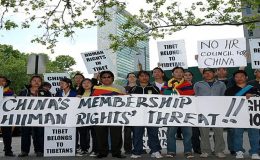High Commissioner Michelle Bachelet must ensure her announced UN visit is credible, unfettered and meaningful, and that it is preceded by the prompt release of the much-awaited UN report on serious violations in Xinjiang, the Uyghur region.
60 human rights organisations, including prominent Uyghur, Tibetan, Hong Kong, and mainland Chinese groups, published a joint statement laying out the main expectations and core preconditions to be met so that the UN High Commissioner for Human Rights Michelle Bachelet’s announced visit to China can truly be considered credible.
On 8 March, Michelle Bachelet announced that she had secured a visit ‘foreseen to take place in May’, while an ‘advanced team’ would go to China in April to prepare for it, ‘including onsite visits to Xinjiang and other places’. Bachelet also said that ‘preparations will have to take into account Covid-19 regulations.’ The country, now facing its highest peak of infections ever, has put in place highly restrictive measures under its ‘zero-Covid’ policy, including localised and city-wide lockdowns implemented with little notice, and a 21-day quarantine for international visitors.
The organisations urge the High Commissioner and her team to meet with and make inquiries about detained human rights defenders and victims to assess their well-being and the compliance of their detention with international standards.
In their statement, the groups also call on Bachelet to be transparent over steps taken to ensure access is unfettered, and over her planned response to any breach of the agreement by the Chinese government.
Despite China’s commitments, there remain significant concerns about the likelihood that conditions for unrestricted access, the details of which remain undisclosed, are effectively met. According to the Secretary-General, China ranks among the top perpetrators of reprisals against civil society actors who seek to cooperate with the UN. The 2016 visit of a UN poverty expert resulted in lawyer Jiang Tianyong’s disappearance, while the UN expert reported being followed by police and prevented from meeting with civil society.
Bachelet’s 8 March announcement did not provide any update on the Office of the UN High Commissioner for Human Rights (OHCHR) long-awaited report on serious human rights violations in Xinjiang, the Uyghur region. In September 2021, Bachelet had confirmed her Office was ‘finalising its assessment of the available information on allegations of serious human rights violations in [Xinjiang], with a view to making it public.’ In December, an OHCHR spokesperson stated the report would be released ‘in a matter of a few weeks.’ There has been no mention of it ever since. Reliable diplomatic sources indicate the report has been ready since September 2021.
NGOs and UN experts have gathered a diverse body of information detailing grave human rights violations that could amount to atrocity crimes. In June 2020, over 50 UN independent experts called for ‘decisive measures to protect fundamental freedoms in China’, including the establishment by the Human Rights Council of ‘an impartial and independent United Nations mechanisms to closely monitor, analyse and report annually on the human rights situation in China.’ They reiterated grave concern about a range of issues, from the ‘collective repression of the population, especially in Xinjiang and Tibet, to the detention of lawyers and prosecution and disappearances of human rights defenders across the country.’
The joint statement can be downloaded here in English and Simplified Chinese.






Leave a Comment